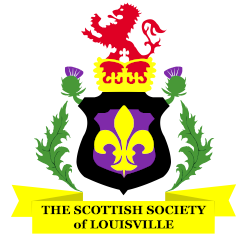“Kirk” is the Scottish word for church; tartan, or plaid, as it is generally referred to in the States, is a woolen cloth woven in one of several patterns of colored checks and intersecting lines, especially of a design associated with a particular Scottish clan. It is interesting to note that the Commonwealth of Kentucky has its own tartan!
It could be said that the “Kirking of the Tartans” could be interpreted
as “bringing the family plaids to church to have them blessed”.
While the practice began in America and had its inception in Washington D C during the early years of World War II by Dr. Peter Marshall, a native of Scotland and a Presbyterian minister who was at that time the Chaplain of the Senate, its origins can be traced back to the period following the defeat of Bonnie Prince Charlie at the Battle of Culloden in 1746,the final battle of the Jacobite Rebellion.
By government decree (Disarming Act), most male Scots were expressly forbidden from wearing any item of tartan or bearing arms.
In defiance of this proscription, the Scots would secretly wear or carry a piece of their cherished tartan to church on Sundays and at a pre-arranged signal, the minister, well aware of the practice, would incorporate a blessing of the tartans and the clans they represented, into the prayer.
Thankfully, in today’s enlightened times, there is no need to resort to such subterfuge and indeed, the tartan banners used in services today are proudly carried into church, generally to the accompaniment of pipes and drums.
Nowadays, services are held throughout the States and at various times of the year in churches of all denominations; they serve as a poignant reminder of the fortitude of those brave men hundreds of years ago who were determined to take whatever action was necessary to preserve this very important and visible aspect of their heritage.
Please contact our Society representative to plan a Kirking at your church by clicking on this link kirkings@scotsoflou.com


